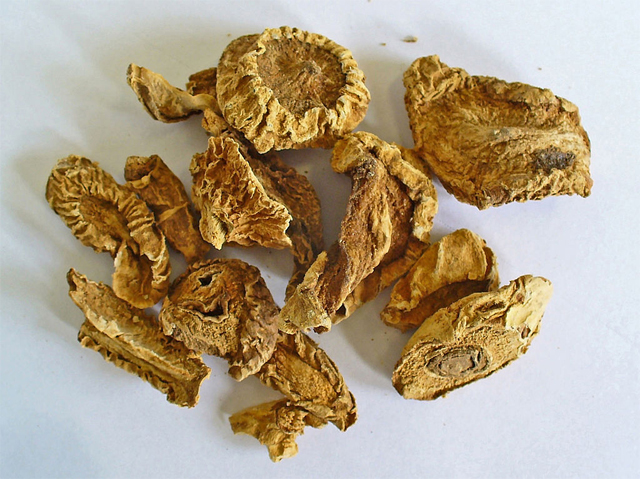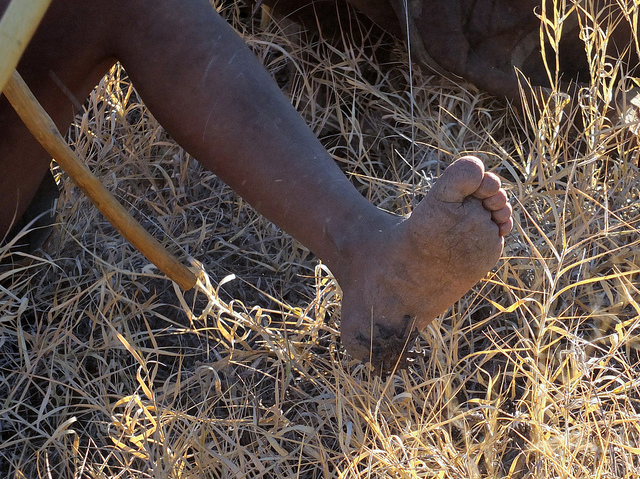The sustainable harvesting of roots from the devil’s claw plants growing in the Kalahari Desert, and their careful marketing to international herbal medicine buyers, are returning increasing profits to the Ju/’hoansi. Two different reports last week, from the Namibia Economist and the New Era newspapers, carried complementary stories about the good economic news from the Nyae Nyae Conservancy of the Ju/’hoansi and the neighboring N#a Jaqna Conservancy of the !Kung.

The reports explained that plentiful rains in 2017 and rising prices for the herbal medicines made from the devil’s claw roots have boosted the harvesting and sales of the plant products. For centuries, according to an earlier report, the Ju/’hoansi have been carefully harvesting some of the roots of the unobtrusive plants for their medicinal properties, in the process carefully protecting them so they will still be flourishing the next time the people want to gather them. During this past year, nearly 200 Ju/’hoansi harvested and sold about 18.7 tons of the tubers, earning the people nearly N$1 million (US$73,690). The conservancy will earn about N$1.4 million. The neighboring !Kung harvested somewhat more on the lands of their conservancy.
Other than the well-documented health benefits of the tubers, part of the appeal of the products is that they are harvested and sold on a strictly sustainable basis—a strategy which melds with the traditional approaches of the Ju/’hoansi anyway and adapts their traditions into a modern market economy. The Nyae Nyae Conservancy has particularly benefited because it has agreed to an arrangement with the buyer, EcoSo Dynamics, a local exporting firm, to a written contract that has formed a type of fair trade marketing system.

The fair trade agreement, called Fair for Life Certification, is based on the concept that local, indigenous people can take charge of their own development. The parties to the contract agree that both the harvesters and the company handling the products will work together and form respectful relationships, the reports said. Fair working conditions are essential, as is respect for the environment in every phase of the supply chain. Buyers can then read on the products they purchase the conditions under which the herbal medicines were harvested, processed and sold.
Mr. Gero Diekmann, Managing Director of EcoSo Dynamics, said that the partnership between his company and the Ju/’hoansi harvesters has grown on a basis of mutual trust over the past 10 years. In cooperation with the conservancies, they have developed a system whereby each bag of roots can be traced back not only to the individual who gathered it but to the actual place where it was harvested.
The stable system, composed of a reliable local buyer and harvesters who are quite comfortable with the need for careful, consistent, system-wide requirements and record keeping, fosters the sale of products that are certified as both organic and fair trade. The two conservancies earn about 75 percent of their income from their devil’s claw businesses.